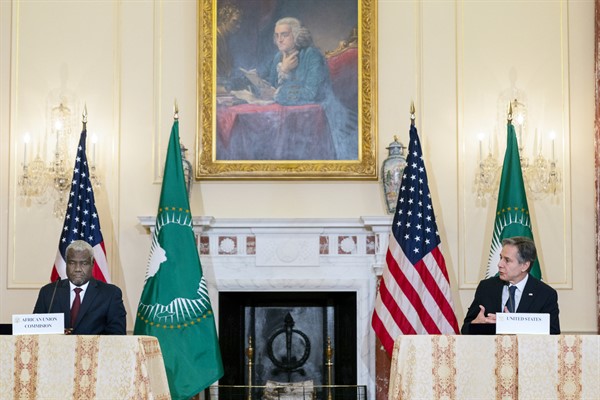The war in Ukraine might be distant from the African continent, but its effects are proving to be far-reaching. From skyrocketing fuel prices to disruptions in food supply chains, Africans are feeling the real-life consequences of a conflict many of them regard as peripheral to their concerns and believe has little to do with them. But in addition to exacerbating the myriad difficulties African populations are grappling with, the war is also threatening to hobble the international collaborations their governments are trying to develop to address those challenges.
That dynamic was on display at last week’s eighth annual high-level dialogue between the African Union and the United States held in Washington. With Washington consumed by its international diplomacy to isolate Russia for its invasion of Ukraine, Biden administration officials, including Secretary of State Antony Blinken and national security adviser Jake Sullivan, reportedly used the meeting to press African Union Commission Chairperson Moussa Faki Mahamat on the issue. Ever since a United Nations General Assembly resolution condemning Russia for the invasion—in which 17 of the 35 abstentions were cast by African member states—the U.S. and its European allies have stepped up pressure on Africa to back their position and take a tougher line against Moscow.
Ukraine also came up during Faki’s meeting with Samantha Power, the administrator of the U.S. Agency for International Development, who referred to the “far-reaching negative repercussions of Russia’s unprovoked and unjustified attack on Ukraine, on African livelihoods and food security” in a readout of their discussion posted on the agency’s website. More recently, the U.S. ambassador to the United Nations, Linda Thomas-Greenfield, said that African countries cannot remain neutral on the war in Ukraine, while pledging to support South Africa’s offer to mediate between Moscow and Kyiv.

